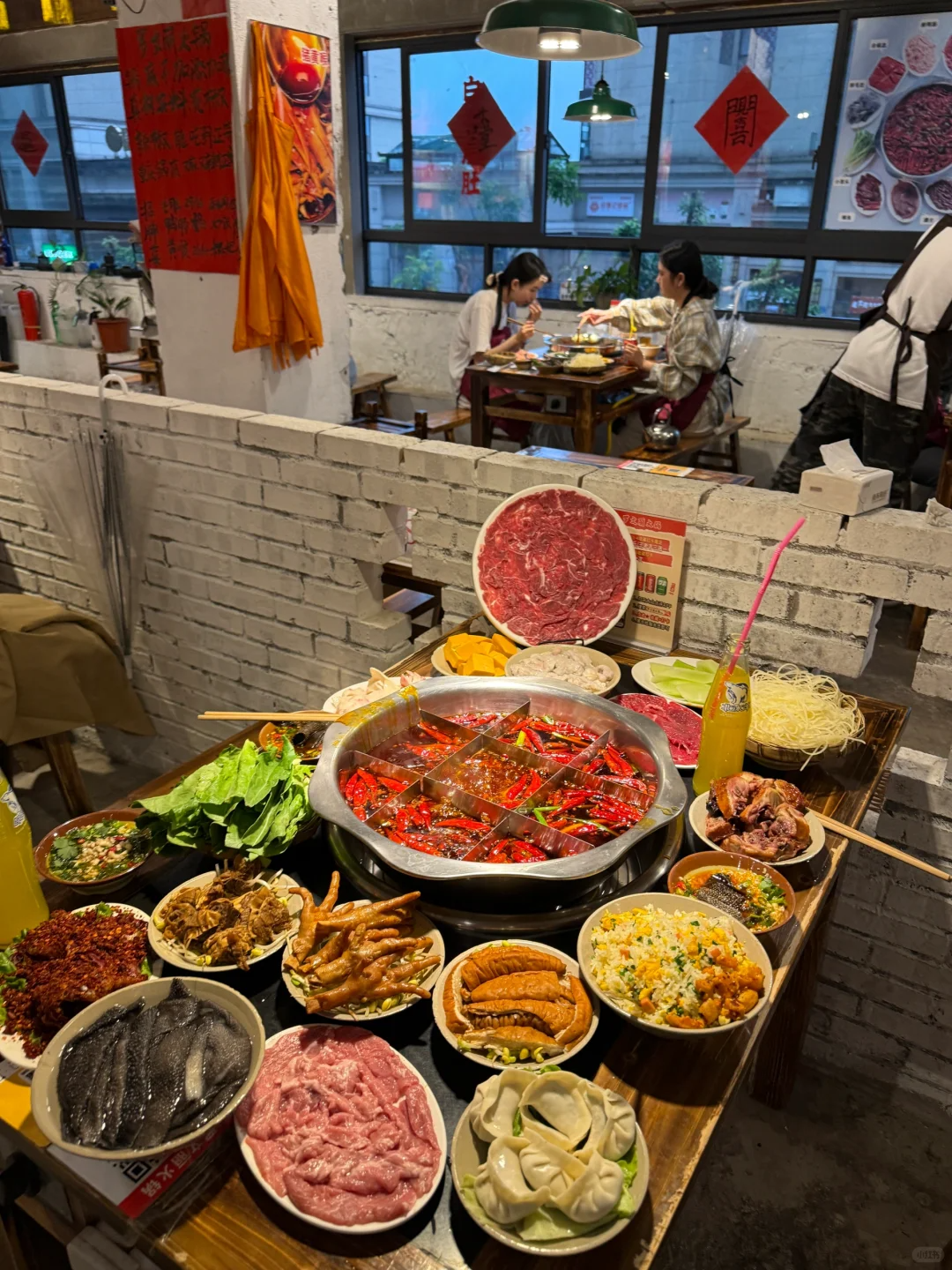Beijing Travel Hacks: No Online Booking? No Problem! 🎟️✨
Beijing Travel Hacks: No Online Booking? No Problem! 🎟️✨
Don’t panic if you can’t book tickets for popular attractions on your phone! 📱 You can totally sort it out on-site. I saw so many people buying tickets or making reservations directly at places like the Temple of Heaven and the Summer Palace these past few days. It’s super simple! Those who insist you must book way in advance online are just creating unnecessary stress. 😒
‼️ Important Tips
🌟 Tip 1: Getting to the Forbidden City
If yo ...
Chongqing's Ciqikou! Never Again (Tourist Trap Survival Guide) 🚫🙅♀️
Chongqing’s Ciqikou! Never Again (Tourist Trap Survival Guide) 🚫🙅♀️
They say Chongqing has no off-season, and that’s especially true for Ciqikou Ancient Town! 🫠 Before I came, so many people said, “Don’t go, it’s not worth it.” Well, you can call me stubborn for having to see it for myself! 👍🏻 So now, it’s my turn to write the guide. Seriously, everyone, stop thinking about going to Ciqikou. It’s NOT! WORTH! IT!
🏮 Look up, and all you’ll see are seas of people. Every single step forward ...
Leave a Day for This Ancient Village in Chongqing! 🏞️✨
Leave a Day for This Ancient Village in Chongqing! 🏞️✨
Towering ancient trees, babbling brooks under small bridges, and green-tiled stone steps… I’ve been here many times, and this ancient village by the Jialing River in Chongqing is a true hidden gem. When you travel to Chongqing, don’t just flock to Hongya Cave. You must set aside a day for this unique, lesser-known ancient village!
🌳: Jingangbei Happy Village (Jingangbei Kuaile Cunzhuang) 金刚碑快乐村庄 (Free Entry)
🚗 By Car: Navigate to “Jingan ...
My Top 10 Unbeatable Restaurants in Chongqing 🌶️🍲✨
My Top 10 Unbeatable Restaurants in Chongqing 🌶️🍲✨
These are the spots I always go back to in Chongqing, covering all my cravings! 🤩
1️⃣ Wangxing Beef (Wangxing Niurou) 旺兴牛肉 (Shuangbei 双碑)
OMG, I’m obsessed with their Crystal Beef (Shuijing Niurou) 水晶牛肉! It’s unbelievably tender, and the hot pot broth is packed with flavor. You have to try it! 🥩
2️⃣ Xuan Hot Pot (Xuan Huoguo) 煊火锅 (Guanyinqiao 观音桥)
This is an authentic, old-school hot pot spot hidden in a residential building! The famous act ...
9 Chongqing Restaurants I'll Never Get Tired Of! 🌶️🍜
9 Chongqing Restaurants I’ll Never Get Tired Of! 🌶️🍜
Here are 9 spots in Chongqing that I find myself going back to again and again! 🤩
1️⃣ 青椒鱼 Qingjiao Yu (Green Pepper Fish) (Huixing Branch) 🐟
This place in the 回兴 (Huixing) area has been serving up its signature green pepper black fish for over a decade, and OMG, it’s so fragrant and tender! 🤤 It’s so good that even the “hot pot racers” (a local nickname for fast-driving taxi drivers!) go there to eat!
2️⃣ 东东食店 Dongdong Shidian (Dongdong ...
My 5 Trips to Chongqing - An Insider's Ultimate Guide | Don't Go Before Reading This!
My 5 Trips to Chongqing: An Insider’s Ultimate Guide 🌶️🏙️ | Don’t Go Before Reading This!
Hey everyone! 👋 After visiting the incredible mountain city of Chongqing five times, I’m here to share some real talk. Chongqing is fantastic for budget travel, but you absolutely need a good plan to avoid the common tourist traps! 🗺️
This guide covers everything: where to stay, how to get around, what to eat, and what to skip. If you’re new to Chongqing and worried about making mistakes, this post is ...
Escape Hongyadong! A Chongqing Local's Secret Itinerary 🗺️✨
Escape Hongyadong! A Chongqing Local’s Secret Itinerary 🗺️✨
Honestly, if you’re tired of the neon lights and commercialized old streets of Hongyadong, you should definitely head next door to Nan’an District. It’s less crowded, super fun, and a hidden gem that even I, a local, revisit again and again! Here, you can not only enjoy the natural scenery of Nanshan Mountain but also see the original old streets and feel the authentic history of Chongqing. 🌆
💪 Off-the-Beaten-Path Citywalk Itinerar ...
My Summer Trip to Chongqing & I'm Overwhelmed 😭 Brutally Honest Tips! 📍
My Summer Trip to Chongqing & I’m Overwhelmed 😭 Brutally Honest Tips! 📍
Fresh off the plane from Chongqing, and I HAVE to share my hard-earned wisdom to help you avoid the pitfalls! 🔥 Chongqing in July-August is officially in scorching summer mode. It’s stunningly beautiful, but the heat is no joke! The summer crowds are still huge despite the high temps, so without a solid plan, you can easily run into trouble. 😓 If you’re planning a trip, please listen to this advice!
😭 Truth Bombs f ...
1-Hour Whirlwind Tour of Chongqing Zoo's Panda House 🐼⏰
1-Hour Whirlwind Tour of Chongqing Zoo’s Panda House 🐼⏰
If you’re heading to Chongqing Zoo just for the giant pandas, this guide is a MUST-SAVE! 🤩 Get the latest news, a perfect schedule, and the best route to see the pandas efficiently without any detours!
🎫 Ticket Info
Adult Ticket: ¥25 💰
Students/Seniors over 65: Half Price!
Opening Hours: 8:00 AM - 6:00 PM 🕗
🚇 Transport Tips Take Light Rail Line 2 to the Zoo Station 🚈 and leave from Exit 1. Walk straight for about 50 meters (1 ...
Chongqing's Hongyadong|Step into a Real-Life "Spirited Away" 🏮🌃 🌟
🌟 Chongqing’s Hongyadong|Step into a Real-Life “Spirited Away” 🏮🌃 🌟
✨ 【Why You MUST Visit】1️⃣ Peak Magical Nightscape: Hongyadong’s lights glitter like a star-kissed dreamscape. The layers of Diaojiaolou (stilt houses) cascading down the cliffside glow brilliantly in the night, looking exactly like a fairy tale world from Hayao Miyazaki’s imagination! Stand on Qianximen Bridge for a panoramic view, where the river mirrors the golden lights – every shot is an absolute masterpiece 📸.
2️⃣ The ...









